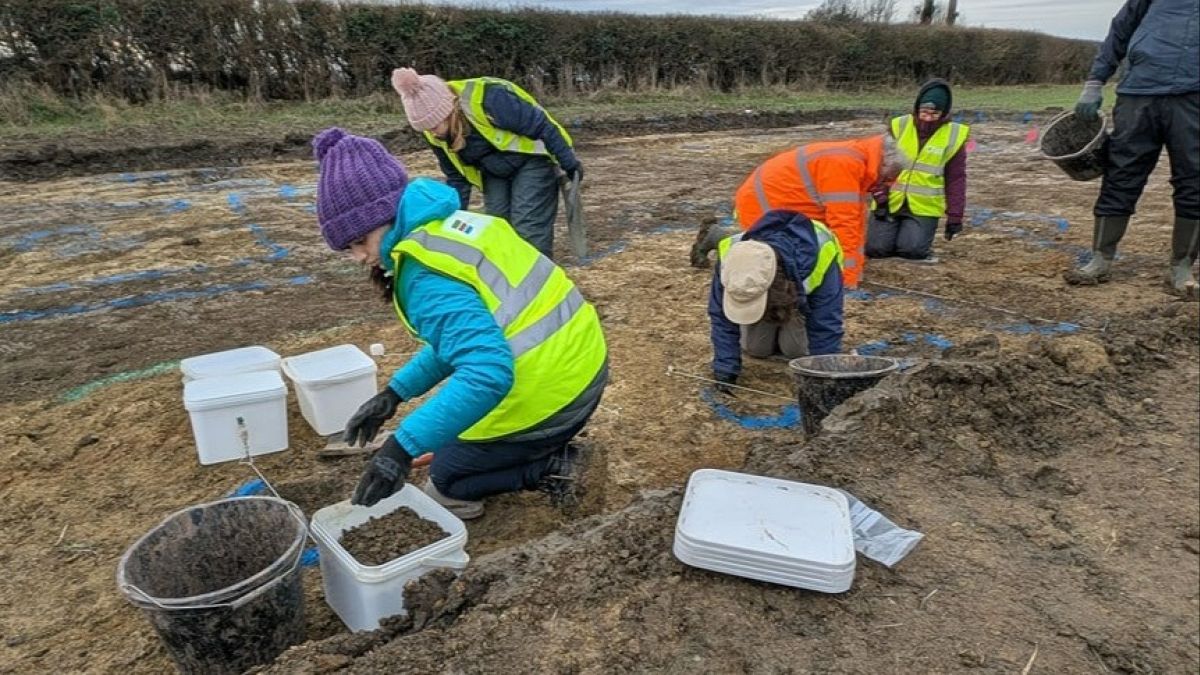

This week heralds an intriguing mix of discoveries and changes across different facets of our lives. From the uncovering of ancient Roman history in England to transformative shifts in Poland’s energy landscape, and from China’s burgeoning interest in mysticism to important implications for US consumers with buy now, pay later loans, each story reflects the continuous journey of exploration and adaptation in our world.
In England, an unexpected archaeological find has lit up the corridors of history, revealing the breadth of settlement during the Roman era. The journey began with the discovery of an exceptionally rare sword, leading archaeologists to unearth an extensive settlement that dates from the Early-Middle Iron Age through to the Roman period in the first and second centuries AD. This find offers a fascinating glimpse into the lives of those who inhabited the area long before our time, providing valuable insights into their social and cultural dynamics. Such discoveries play a fundamental role in enriching our understanding of historical narratives and bridging the past with the present.
Meanwhile, in a significant development within the realm of energy, Poland marked a milestone as renewable energy sources generated more electricity than coal for the first time in a month. This transition reflects efforts to reduce carbon emissions and aligns with global commitments to sustainable energy practices. While coal consumption has begun to diminish, it’s essential to note that the use of oil and gas has risen, positioning Poland among the high-emitting economies globally. However, this shift toward renewables signals Poland’s potential to embrace a cleaner energy future, highlighting an emerging balance between tradition and innovation in energy production.
Across the globe in China, a different kind of exploration is unfolding as many young people turn to the ancient practice of divination in fortune-telling bars. These establishments offer a mix of traditional spiritualism with modern comforts like drinks and snacks. This trend is intertwined with an economy that is experiencing its own fluctuations, as individuals seek affordable avenues for relief and self-discovery amid economic pressures. The resurgence of such practices underscores a deep-rooted cultural affinity for mysticism, which persists even in the face of modernization and previous governmental discouragements.
In the United States, recent changes to the reporting of buy now, pay later (BNPL) loans on credit scores are causing waves of concern among consumers. While some individuals worry about the impact on their spending power and credit access, financial experts suggest that the change could ultimately prove beneficial. By integrating BNPL loans into credit scoring, borrowers might build a more comprehensive credit history, potentially opening doors to broader financial opportunities in the long term. This shift illustrates the evolving landscape of financial management and underscores the importance of adapting to new credit paradigms.
These stories collectively offer a window into the dynamic nature of our world. As we uncover historical treasures, transition toward sustainable practices, revisit age-old traditions, and navigate changes in financial systems, each development echoes the resilience and inventiveness inherent in humanity. In exploring these narratives, we are reminded of the interconnectedness of our past, present, and future, and the pathways through which we continue to adapt and grow.
Source: {link}
